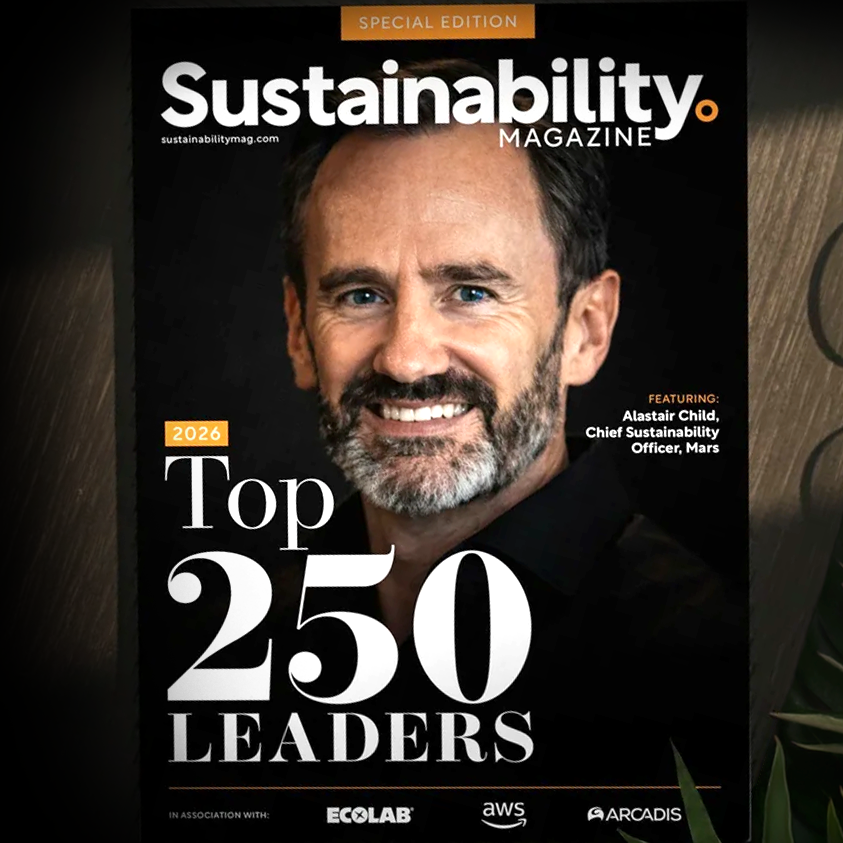By Claus Aagaard, Chief Financial Officer at Mars
During this year’s United Nations General Assembly and Climate Week in New York City, I had the privilege of joining global leaders, business peers, and the NGO community to identify pathways and accelerate progress towards the UN’s Sustainable Development Goals.
There’s no denying the world is facing tremendous challenges. As individuals, we have all felt or seen the ongoing trends – from political tensions to the impacts of climate change.
While we must focus on the emergencies of the present, it’s clear that today’s challenges are directly connected to the long-term resilience of our planet and global communities.
Now more than ever, it’s critical we stay on course in order to limit global warming below 1.5 degrees. But what will it take to achieve net zero? How can businesses prioritize investments in delivering meaningful emissions reductions throughout their entire value chain?
Last week, I was pleased to host a dialogue to explore the critical importance of sustaining investment and focus on climate action. At Mars, our net zero ambitions and broader sustainability agenda are embedded into our shareholder objectives, through what we call the Mars Compass. Sustainability is critical to the business.
At this panel event, I was joined by Ezgi Barcenas, Chief Sustainability Officer at AB InBev and Maria Mendiluce, Chief Executive Officer at We Mean Business. We explored what it looks like in practice to deliver on credible strategies to meaningfully reduce emissions.
I believe that any business that’s serious about achieving net zero must decouple business growth from carbon emissions. This requires a comprehensive approach to carbon reduction that accounts for all emissions, including Scope 3, throughout the entire value chain. It also means setting – and, most importantly, meeting – interim targets with urgency and transparency.
At Mars, we have set a science-based target to achieve net zero emissions in our entire value chain by 2050, including all Scope 3 emissions. This is backed by a short-term ambition to achieve a 27% reduction in emissions by 2025.
But it’s not about ambition, it’s about results. That’s why we’re transforming our supply chains through our Sustainable in a Generation Plan(Opens a new window), with a focus on action now – from how we source raw materials like palm oil and cocoa, to tackling deforestation or using renewable energy in our operations.
As business transformation enablers, finance teams are uniquely positioned to bring a holistic approach to the business challenge, using the same rigor in implementing and measuring our sustainability goals as we do in other business challenges.
Our finance team has elevated sustainability priorities as a critical strategic choice, alongside other business priorities, as opposed to being something separate or a "nice to have." Simplistically, I try to make sustainability investments "business as usual imperatives" – my experience is that things that are business imperatives just get done. Carbon considerations must also inform most decisions, big or small, and it all adds up to create a meaningful impact.
As part of our strategy and governance, we are embedding sustainability investments in our resource allocation framework – capturing not only the investment but also the benefits and growth opportunities.
As a result, we’ve been able to demonstrate that reducing emissions while pursuing growth is possible. We’re proud of the progress we’ve made to reduce emissions by 6.1%, while growing our business by 28%.
The roadmap to achieving net zero emissions will be difficult. These are complex, systemic challenges; however, I left the discussion feeling optimistic.
Progress is possible if leaders come together to reimagine the way we do business, and work to decouple business growth from emissions across our entire value chains.
This is the blueprint we need for a future where people, planet, and business are thriving.












